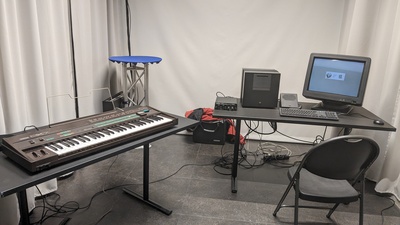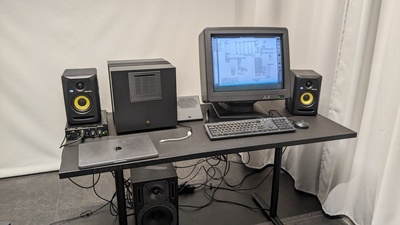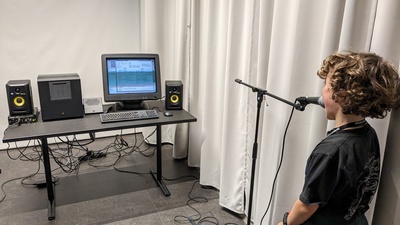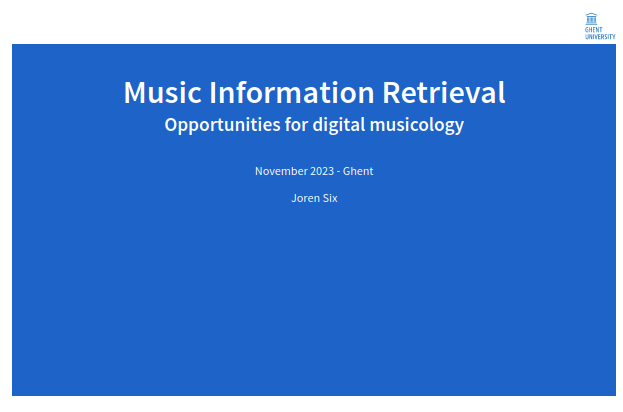~ NextCube, IRCAM Musical Workstation Demo @ Science Day
» By Joren on Monday 13 November 2023I will be demoing an early digital music workstation at the Flanders 2023 Science Day. During the Science Day there will be demonstrations of several of the electronic music heritage instruments of the collection of IPEM, which used to be an early electronic music production studio. In the collection is a vintage analog synthesizer (an EMS Synthi 100), a Yamaha DX7, an analog plate reverb audio effect processor and, finally, a NeXTcube with a unique sound-card and early digital music workstation software.
The NeXTcube is an influential machine in computing history. The NeXTcube, with an additional soundcard, was also one of the first off-the-shelf devices for high-quality, real-time music applications. I have restored a NeXTcube to run an early version of MAX, an environment for interactive music applications. This combination of software and hardware was developed at IRCAM and was known as the IRCAM Musical Workstation or IRCAM Signal Processing Workstation (ISPW). See my previous blog posts on Electronic Music and the NeXTcube and USB MIDI interface for the NeXTCube

Fig: the NeXTcube's design stood out compared to the contemporary beige box PCs.`
The IPEM collection of electronic music instruments is unique with the aim to reintroduce the instruments into daily music practice an turn them into living heritage`. For example in 2020, the Dewaele Brothers released the album made exclusively on the IPEM ‘EMS Synthi 100’ synthesizer. The NeXTcube demo will be hands-on as well. See you there!




